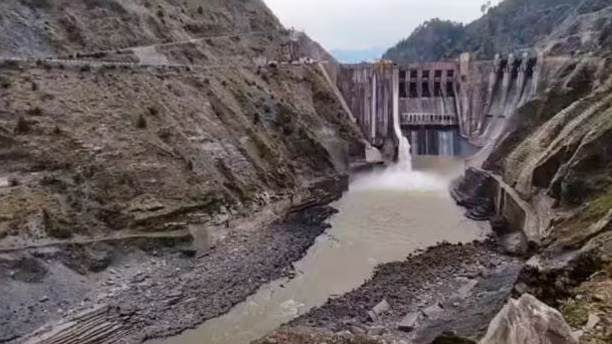

NEW DELHI, June 27, 2025 - India has strongly rejected the authority of a so-called Court of Arbitration regarding the Indus Waters Treaty, dismissing its recent supplemental award as "illegal" and "void" while accusing Pakistan of resorting to a "fabricated arbitration mechanism" to manipulate international forums.
The Ministry of External Affairs (MEA) denounced the Permanent Court of Arbitration's (PCA) ruling on hydroelectric project disputes, particularly concerning dam projects in Jammu and Kashmir, marking a significant escalation in the long-standing water dispute between the two nuclear-armed neighbors.
India has rejected the supplemental award by a so-called Court of Arbitration on Indus Waters Treaty, calling it 'illegal' and 'void', and denouncing its authority over hydroelectric project disputes, according to official sources.
The rejection comes amid heightened tensions over water sharing arrangements that have been a source of conflict between India and Pakistan since the 1960 treaty was signed.
"Pakistan's resort to this fabricated arbitration mechanism is consistent with its decades-long pattern of deception and manipulation of international forums," the Ministry of External Affairs stated, highlighting India's broader concerns about Pakistan's approach to international dispute resolution.
This strong language reflects India's view that Pakistan has been using international arbitration mechanisms inappropriately to gain leverage in bilateral disputes, particularly regarding water resources and hydroelectric projects in the disputed Kashmir region.
However, the Permanent Court of Arbitration says New Delhi's move regarding the 1960-signed water-sharing treaty does not limit its competence over disputes between India and Pakistan, according to recent statements from the Hague-based institution.
The arbitration court has maintained its position that it retains jurisdiction over the dispute despite India's objections and recent suspension of the treaty.
The current arbitration proceedings trace back to August 19, 2016, when the Islamic Republic of Pakistan instituted arbitral proceedings against the Republic of India under Paragraph 2(b) of Annexure G to the Indus Waters Treaty 1960.
The dispute primarily centers around India's hydroelectric projects on rivers covered by the treaty, with Pakistan alleging violations of the water-sharing agreement that governs the distribution of Indus river system waters between the two countries.
The rejection of arbitration authority comes in the context of India's recent suspension of the Indus Waters Treaty. On April 23, 2025, following the Pahalgam terrorist attack, the Government of India suspended the treaty, citing national security concerns and alleging Pakistan's support of state-sponsored terrorism.
This suspension marked a dramatic shift in India's approach to the decades-old water-sharing arrangement, linking water cooperation directly to security concerns and cross-border terrorism.
India's categorical rejection of the arbitration court's authority represents a significant departure from established international dispute resolution mechanisms. The move signals New Delhi's intention to handle water disputes through bilateral channels rather than international arbitration.
The decision also reflects broader tensions in India-Pakistan relations, where water sharing has become increasingly politicized amid ongoing security concerns and diplomatic deadlock.
With India refusing to recognize the arbitration process and having suspended the treaty itself, the future of water cooperation between the two countries remains uncertain. The rejection of international arbitration mechanisms could set a precedent for how India approaches multilateral dispute resolution in sensitive bilateral matters.
The water dispute continues to be a major irritant in India-Pakistan relations, with implications extending beyond the two countries to regional stability and international water law precedents.